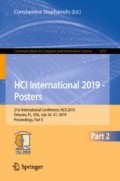Abstract
The co-acquisition of EEG in a virtual environment (VE) would give researchers and clinicians the opportunity to acquire EEG data with millisecond-level temporal resolution while participants performed VE activities. This study integrated Advanced Brain Monitoring’s (ABM) X-24t EEG hardware with the HTC Vive VR headset and investigated EEG differences in tasks delivered in two modalities: VE and a desktop computer.
EEG was acquired from 10 healthy individuals aged 24–75 with a 24-channel wireless EEG system. This was synchronized with a resting-state eyes open/closed task in both dark and bright environments, a sustained attention task (3-Choice Vigilance Task, 3CVT) and an image memory task. These tasks, along with resting data, were collected in a VR-administered VE as well as on a desktop computer. Event-related potentials (ERPs) were investigated for target trials for SIR and 3CVT. Power spectral analysis was performed for the resting-state tasks.
A within-subject comparison showed no differences in the amplitudes of the Late Positive Potential (LPP) in 3CVT when comparing tasks administered in the VE and the desktop. Upon visual inspection, the grand average waveforms are similar between the two acquisition modalities. EEG alpha power was greatest during resting state eyes closed in a dark VR environment.
This project demonstrated that ABM’s B-alert X24t hardware and acquisition software could be successfully integrated with the HTC Vive (programmed using Unreal Engine 4). This will allow high quality EEG data to be acquired with time-locked VR stimulus delivery with temporal resolution at the millisecond level. As expected, a within-subjects analysis of cognitive ERPs revealed no significant differences in the EEG measures between Desktop and VR AMP acquisitions. This shows that the task administration in a VE does not alter the neural pathways activated in sustained attention and memory tasks.
Access this chapter
Tax calculation will be finalised at checkout
Purchases are for personal use only
References
Baka, E., et al.: An EEG-based evaluation for comparing the sense of presence between virtual and physical environments. In: Proceedings of Computer Graphics International 2018, pp. 107–116. ACM, Bintan Island (2018)
Tromp, J., et al.: Combining EEG and virtual reality: the N400 in a virtual environment. In: The 4th Edition of the Donders Discussions (DD 2015), Nijmegen, Netherlands (2015)
Lin, C.-T., et al.: EEG-based assessment of driver cognitive responses in a dynamic virtual-reality driving environment. IEEE Trans. Biomed. Eng. 54(7), 1349–1352 (2007)
Makransky, G., Terkildsen, T.S., Mayer, R.E.: Adding immersive virtual reality to a science lab simulation causes more presence but less learning. Learn. Instr. 60, 225–236 (2017)
Slobounov, S.M., et al.: Modulation of cortical activity in 2D versus 3D virtual reality environments: an EEG study. Int. J. Psychophysiol. 95(3), 254–260 (2015)
Slobounov, S.M., Teel, E., Newell, K.M.: Modulation of cortical activity in response to visually induced postural perturbation: combined VR and EEG study. Neurosci. Lett. 547, 6–9 (2013)
Tata, M.S., et al.: Selective attention modulates electrical responses to reversals of optic-flow direction. Vis. Res. 50(8), 750–760 (2010)
Albers, M.W., et al.: At the interface of sensory and motor dysfunctions and Alzheimer’s disease. Alzheimers Dement 11(1), 70–98 (2015)
Yamasaki, T., et al.: Selective impairment of optic flow perception in amnestic mild cognitive impairment: evidence from event-related potentials. J. Alzheimers Dis. 28(3), 695–708 (2012)
Kim, N.G.: Perceiving collision impacts in alzheimer’s disease: the effect of retinal eccentricity on optic flow deficits. Front Aging Neurosci. 7, 218 (2015)
Hort, J., Laczó, J., Vyhná Lek, M., Bojar, M., Bureš, J., Vlček, K.: Spatial navigation deficit in amnestic mild cognitive impairment (n.d.)
Kavcic, V., Vaughn, W., Duffy, C.J.: Distinct visual motion processing impairments in aging and alzheimer’s disease. Vis. Res. 51(3), 386–395 (2012). https://doi.org/10.1016/j.visres.2010.12.004
Author information
Authors and Affiliations
Corresponding author
Editor information
Editors and Affiliations
Rights and permissions
Copyright information
© 2019 Springer Nature Switzerland AG
About this paper
Cite this paper
Rupp, G. et al. (2019). EEG Acquisition During the VR Administration of Resting State, Attention, and Image Recognition Tasks: A Feasibility Study. In: Stephanidis, C. (eds) HCI International 2019 - Posters. HCII 2019. Communications in Computer and Information Science, vol 1033. Springer, Cham. https://doi.org/10.1007/978-3-030-23528-4_35
Download citation
DOI: https://doi.org/10.1007/978-3-030-23528-4_35
Published:
Publisher Name: Springer, Cham
Print ISBN: 978-3-030-23527-7
Online ISBN: 978-3-030-23528-4
eBook Packages: Computer ScienceComputer Science (R0)

